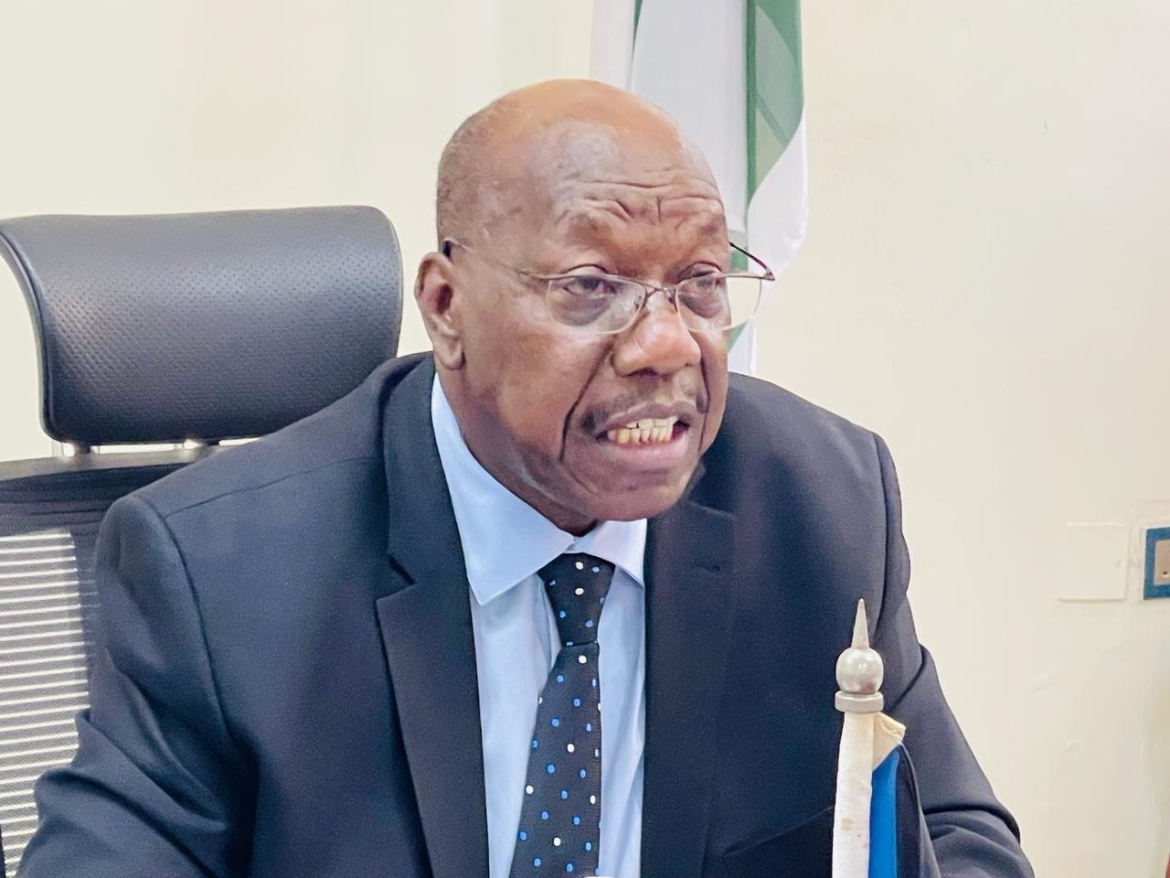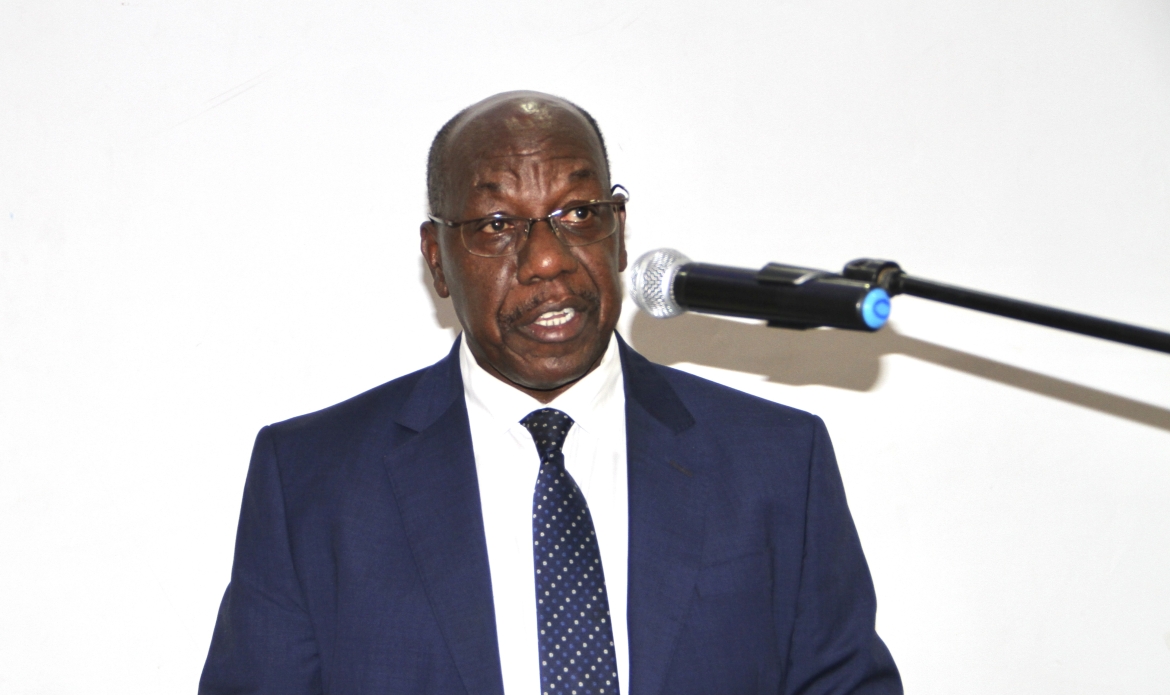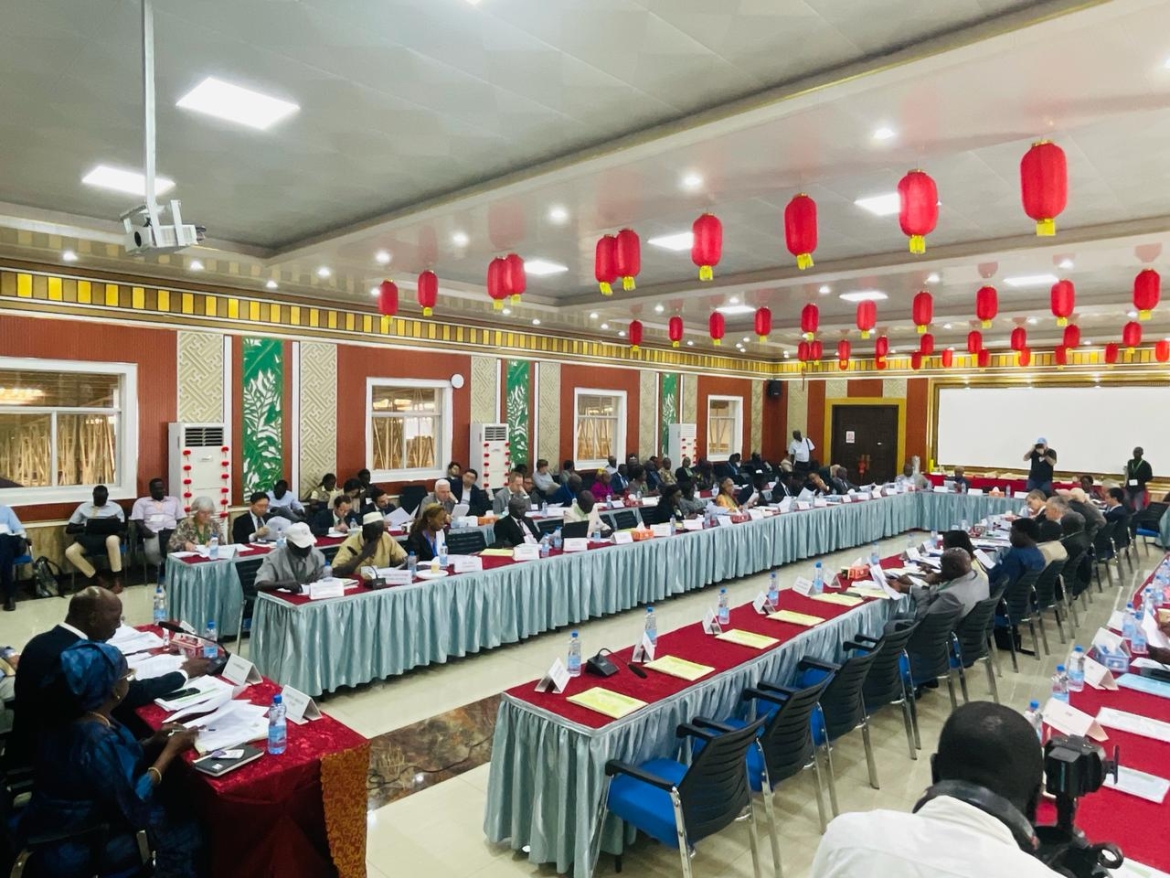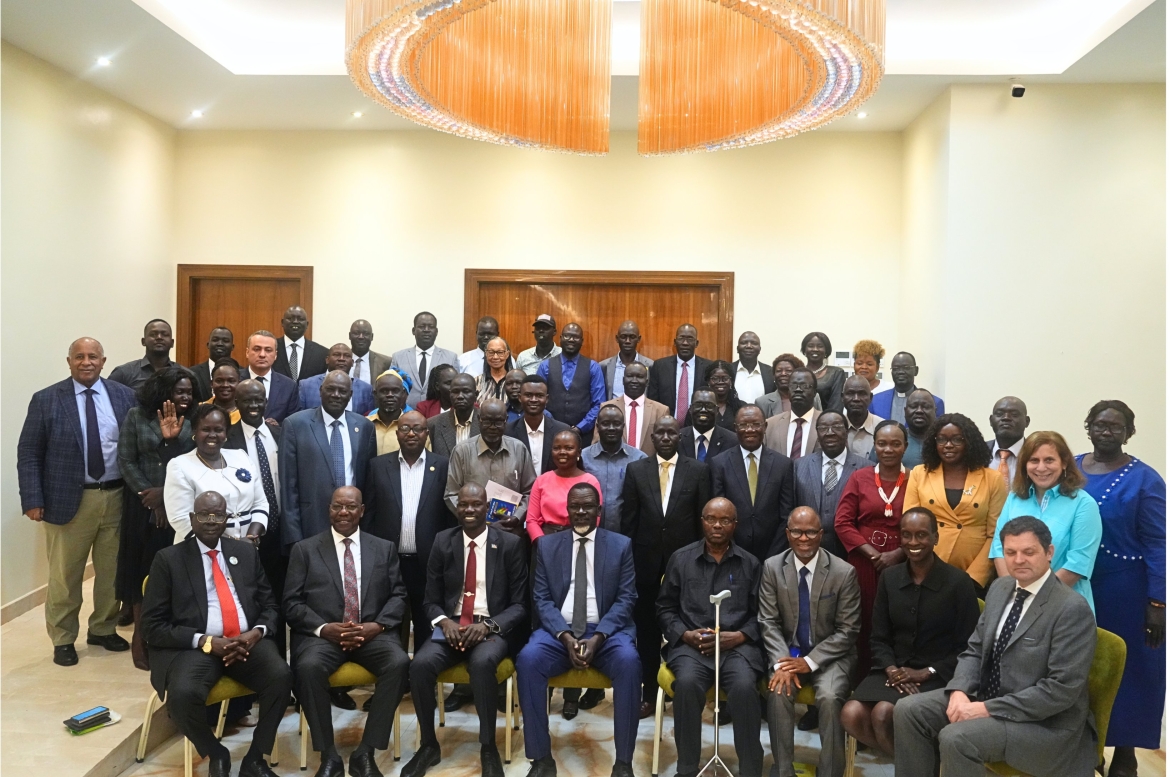Questions and Answers: The South Sudan Permanent Constitution Making Process workshop
1. What does the Revitalised Agreement on the Resolution of the Conflict in the Republic of South Sudan (R-ARCSS) say about the South Sudan Permanent Constitutional Making Process?
Under Chapter 6, the R-ARCSS lays a robust framework for the permanent constitutional-making process. The key features are as follows:
· The RTGoNU is mandated to initiate and oversee a permanent constitution-making process which is expected to be completed within 24 months into the Transitional Period.
· The Constitution-making process is expected to follow 8 agreed principles outlined under Art. 6.2 of the Agreement.
· The RJMEC is mandated to convene a workshop for the Parties to agree on details for constitution-making process (art 6.7).
· Legislation is expected to be enacted, based on the outcome of the workshop, to govern the entire constitution-making process.
· The National Constitutional Review Committee (NCRC – art. 6.6) is meant to be reconstituted after consultations with key stakeholders, with a sub-committee appointed for the convening of the National Constitutional Conference (NCC – Art. 6.6).
· The Transitional National Legislative Assembly (TNLA) is expected to transform itself into a Constituent Assembly in the 27thmonth of the Transitional Period to adopt the Permanent Constitution.
2. Preparation for the Workshop - how did we get here and what happened before we get here?
We have come along way. On Tuesday 25 May, we officially launched the workshop, which was opened by H.E. Salva Kiir Mayardit, President of the Republic and addressed by H.E Abdallah Hamdok, Prime Minister of the Republic of Sudan and Chairperson IGAD Heads of State and Government. The subsequent two days consisted of nominated representatives of the parties / stakeholders’ discussing details of the constitution-process design.
Prior to this launch, we at RJMEC had identified and engaged the Max Planck Foundation to facilitate the workshop as required by the R-ARCSS (art 6.8).
We commissioned a comprehensive comparative study on constitutional making experiences within the region and beyond. The link is here:
All parties and stakeholders to the R-ARCSS to nominate representatives to the workshop namely ITGoNU, SPLM/A-IO, SSOA, FDs, OPP, Women groups, Youths, Faith based leaders, Eminent persons, Academia, Civil Society, and Business communities. RJMEC convened 6 sensitisation meeting with the different parties, stakeholders and relevant rule of law institutions. There was also a joint workshop of all nominees to prepare them for the key areas of discussions which will be taking place at this workshop.
3. What about the design of the workshop - what does the workshop entail/involve?
The workshop involves discussion and agreement around key process design questions such as:
i) Who drafts the constitutional text and at what stage?
ii) What is the composition and mandate of the reconstituted National Constitutional Review Commission (NCRC)?
iii) What is the composition and criteria for the convening of National Constitutional Conference (NCC)?
iv) How will the public participate and civic education?
v) What is the sequencing of the various steps to be implemented?
4. Participants - who are the participants and why/how were they selected?
The participants to the workshop are the officially nominated representatives of the five parties to R-ARCSS (ITGoNU, SPLM/A-IO, SSOA, FDs, and OPP), and 13 representatives of Other South Sudanese (Faith Based Leaders, Eminent Personalities, Women groups, Youth groups, Civil Society, Academia, and Business representatives) under the R-ARCSS. The five-member Taskforce of the Ministry of Justice and Constitutional Affairs and the Minister of Justice also attended as obervers.
Participants were nominated by heads of the different parties and stakeholders’ groups as represented during the High Level Revitalisation Forum 2017-2018.
5. What are the next steps after this workshop?
The next steps are as follows:
i) The outcome of the workshop will be presented to the Minister of Justice and Constitutional Affairs. This will form the basis for the drafting of the legislation.
ii) The legislation will govern the constitution-making process, including:
· the reconstitution of the NCRC;
· the appointment of a sub-committee for the convening of the National Constitutional Conference (NCC);
· civic education and public participation.
· drafting of the constitution;
· the convening of the NCC and
· transformation of RTNLA into Constituent Assembly to. Adopt the Constitution.
6. How are South Sudanese Voices included in the process of making the constitution?
This workshop is only the start of the process. What follows are several more stages, including the enactment of the legislation to govern the process, the reconstitution of the National Constitutional Review Commission (NCRC), the appointment of a Sub-Committee for the convening of the National Constitutional Conference (NCC), civic education, public consultations, convening of the NCC, and transformation of the RTNLA into a Constituent Assembly to consider and adopt the Constitution.
Particularly during the phases of civic education and public consultations all stakeholders will be involved, can participate and/or be represented in the constitution making. Also, the National Constitutional Conferencepresents opportunities for the South Sudanese voice to be heard in the process directly or through representation. It is very important that the diverse voices of South Sudanese people are heard in the process. The importance is paramount – the constitution will be the document which governs the country of South Sudan.
7. What is the role of RJMEC and Max Planck?
RJMEC is the convener of this workshop. RJMEC is mandated to convene the workshop under Art. 6.7. After this workshop, RJMEC steps back in its oversight role to ensure that a legislation is enacted in accordance with the outcome of the workshop to govern the rest of the process and oversee the implementation of the Agreement as a whole.
For more information: visit www.jmecsouthsudan.org
End





